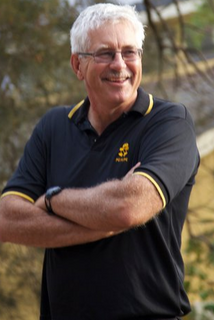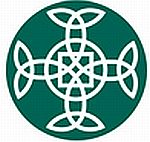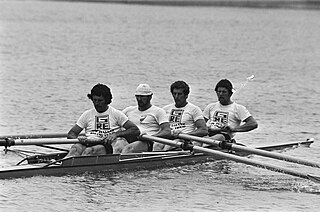
Peter Fraser Dignan was a New Zealand rower.

King's College, often informally referred to simply as King's, is an independent secondary boarding and day school in New Zealand. It educates over 1000 pupils, aged 13 to 18 years. King's was originally a single sex boys school but has admitted girls in the Sixth and Seventh forms since 1980, and in the Fifth form since 2016. King's was founded in 1896 by Graham Bruce. King's was originally situated in Remuera, Auckland on the site now occupied by King's School, Remuera, in 1922 the school moved to its present site in the South Auckland suburb of Otahuhu.
The Maadi Cup is the prize for the New Zealand Secondary Schools Boys' Under 18 Rowing Eights. More colloquially, it is the name given to the New Zealand Secondary Schools Rowing Regatta, at which the Maadi Cup is raced. The regatta is the largest school sports event in the Southern Hemisphere, with over 2100 rowers from 125 secondary schools participating in 2014. The regatta is held annually in late March, alternating between the country's two main rowing venues: Lake Karapiro near Cambridge, and Lake Ruataniwha near Twizel.

St Cuthbert's College is a private (independent) non-denominational day and boarding school for girls, located in Epsom, Auckland, New Zealand.

Alexander Mahé Owens Drysdale is a New Zealand rower. Drysdale is the current Olympic champion and five-time World champion in the single sculls. The name Mahé comes from the largest island in the Seychelles.

Dudley Leonard Storey was a New Zealand rower who won two Olympic medals.
Athol John "Joe" Earl is a former New Zealand rower who won two Olympic medals.

Alexander Robert McLean is a former New Zealand rower who won an Olympic bronze medal.

David Marsden Rodger is a former New Zealand rower who won an Olympic bronze medal.
James Barrie Mabbott is a former New Zealand rower who won an Olympic Bronze medal at the 1984 Summer Olympics in Los Angeles.
Shane Joseph O'Brien is a former New Zealand rower who won an Olympic gold medal at the 1984 Summer Olympics in Los Angeles, California, USA.
Kerry Ayling Ashby was a New Zealand rower.
Thomas Carl Engel was a New Zealand rower who won a silver medal at the 1950 British Empire Games.
Alistair Garth Dryden is a former New Zealand rower.
Robert Edward "Bob" Page was a New Zealand rowing cox.
Brenda Catherine Lawson is a New Zealand rower. She was twice world champion in women's double sculls with Philippa Baker, and they were both inducted into the New Zealand Sports Hall of Fame in 2012.
Ruby Tew is a New Zealand Olympic rower.
Stephen Jones is a New Zealand rower. He was educated, and commenced rowing, at St Peter's College, Auckland. He came fourth at the 2015 World Rowing Championships with the men's eight, qualifying the boat for the 2016 Olympics. He came sixth with his team at the eight competition in Rio de Janeiro.
Peter Hanbury Masfen is a New Zealand businessman, philanthropist, and former representative rower. Regarded as one of the country's most astute businessmen, he is best known for his former shareholding in Montana Wines.

The 1972 New Zealand eight was a team of Olympic gold medallists in rowing from New Zealand, having previously won the 1971 European Rowing Championships. At the time, the eight was regarded as the blue ribbon class of rowing, and the sport still had amateur-status in New Zealand, unlike many other nations competing in rowing. After a disappointing Olympic performance at the 1968 Summer Olympics by the New Zealand eight, national selectors Rusty Robertson, Don Rowlands, and Fred Strachan were tasked with assembling a new crew. Robertson was also the team's coach. The next time a New Zealand eight competed was at the 1970 World Rowing Championships, where they came third. The team was once again significantly changed for the next rowing season, with the 1971 edition of the European Rowing Championships and other international regattas beforehand seen as the ultimate test for the 1972 Summer Olympics. The team put up an impressive performance, beat the highly favoured East German eight, and became European champion; at the time the win was regarded to hold world championship status. No further changes were made to the team, not even their seating position, for the 1972 season. Despite a shoe-string budget, financial constraints, and all rowers working part-time, the 1971 success was repeated and the team won Olympic gold in Munich. The president of the International Olympic Committee (IOC), Avery Brundage, was a zealous advocate of amateurism; he was so impressed by the New Zealand performance that he insisted on handing out the gold medals himself. During the medal ceremony, much to almost everybody's surprise, "God Defend New Zealand" was played instead of the national anthem, "God Save the Queen". It was the impetus for a campaign to make "God Defend New Zealand" the New Zealand anthem, and in 1977 it was gazetted as having equal status to the traditional anthem.






